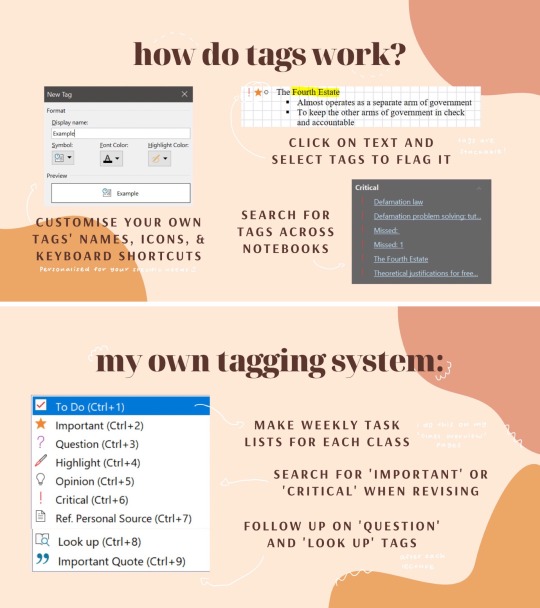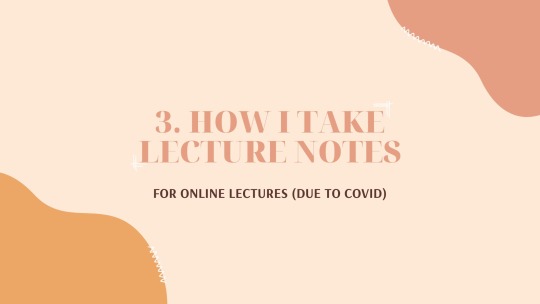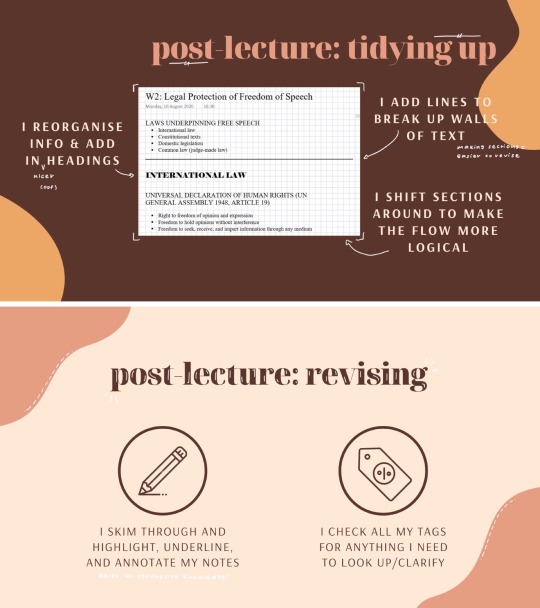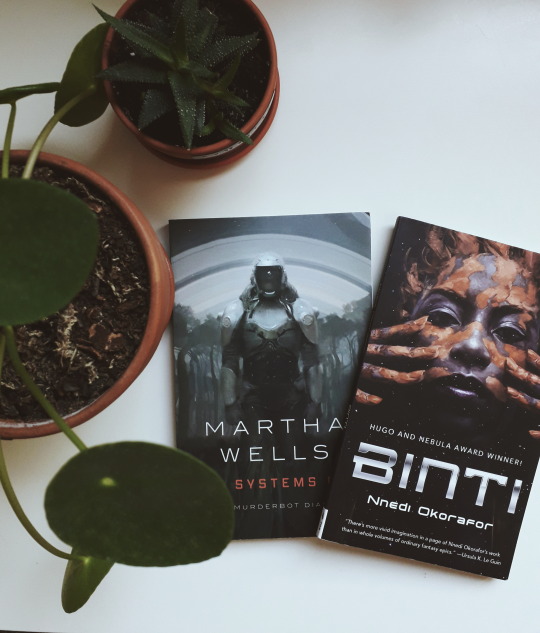Photo

Keep the flame going for those we have lost to suicide.
2M notes
·
View notes
Text










a few people have asked for a post on how i use onenote, so here’s a quick guide! also obviously not sponsored lol
transcript below:
Keep reading
7K notes
·
View notes
Photo

19K notes
·
View notes
Text
i could get so much done if only i could get stuff done
105K notes
·
View notes
Text
me, half-awake, day #9342347543 of quarantine, still in pajamas past noon, just clicked out of another online class, making eye contact with my reflection in the screen of my laptop: get it together u dumb bitch ur doing great
#lys.txt#studyblr#just uni things#my brain is all over the place#had FIVE lectures today#dinnae ken HOW ive managed to keep everything in my smooth almond brain
2 notes
·
View notes
Text
how to avoid education burnout
have 3 achievable goals a day: having a laundry list of things to do everyday is super unrealistic, and you just end up feeling bad about yourself because you didn’t accomplish your goals for the day.
leave your sundays open: i love sundays because they’re my day to chill out and catch up on school work that i wasn’t able to finish during the week.
recognize when you’re at your emotional limits: forcing yourself to get work done when you are unable to comprehend your study material does not benefit anyone.
learn how to say no: people will ask you for your time and it will stretch you to the limit, whether it be at your job, in your extracurriculars, or in your personal life. know when to step back and say no.
take care of yourself physically: take breaks, go for walks, shower regularly, get enough sleep, eat healthy, see your friends
celebrate your accomplishments: go out to eat with friends after a big exam, indulge in a night off after a busy week with some netflix and wine
make a study plan beforehand: it can be daunting to see how much work you need to put in to a class or task beforehand, but this allows you to spread your work evenly so you don’t become overwhelmed.
learn how to ask for help: it is very rare that people make it through school, whether it be high school or university or any graduate program, without needing the advice of others or just a kind soul to vent to. find that person.
never forget your hobbies: you will need things that keep you sane. if you love to play music, write, play volleyball, or cook, make you sure you don’t lose these things. they will become your escape when times get tough.
log off from time to time: it is exhausting to be constantly connected to social media and your email. just physically disconnecting from these for a night to take care of yourself can really help you clear your mind.
71K notes
·
View notes
Text
are you a STUDYBLR / LAWBLR / GRADBLR / LANGBLR?
HI! I have been gone for a while, but I AM BACK. But my dashboard is dead. I am looking for new blogs who have anything to do with studying, school or motivation. If you are and you want me to follow you just FOLLOW ME after REBLOGGING this.
Thank you! I can’t wait to meet you!
209 notes
·
View notes
Text
types of academics: tag yourself
nocturnal: messy notes, never sleeps, wakes up after noon, sarcastic, coffee addiction, turns everything in late, sweats, netflix, needs a lot of naps, deep cleans their room maybe once every 2 months, messy buns, says they’ll be productive but never is until it’s past 2 am
“perfect”: balances work, social life, and health, never sleeps past midnight, aces everything, pretty notes, coffeeshops and libraries, cardigans, makes their bed every morning, mom friend, skincare routine, organized playlists, neat handwriting, autumn, coffee with cream and sugar
extroverted: loud but beautiful laugh, twirly handwriting, polaroids, colorful pens, skirts, wants to/does dye their hair, goes to parties but leaves early, summer, travels a lot, teacher’s pet, throws sleepover study nights, paints nails while reading for homework, leather jackets
chaotic: amazing music taste, probably good with technology, doesn’t bond with professors, has few close friends but lots of acquaintances, parties a lot, never focused (but when they are they’re really productive), really bad at reading people, cram sessions, bad sleep schedule
independent: has only one friend per class, gets everything done on time, prefers office hours over asking questions in class, rain, print-out lecture notes, one yellow highlighter, beautiful smile, the color green, painter, likes studying outside, sensitive to high-energy people, striped sweaters
14K notes
·
View notes
Text
Doing online classes really just be like *has a list of assignments* *have no motivation what so ever* *watch random youtube videos* *stresses* *looks at assignment list again* *stresses more* *eat a snack* *sudden burst of productivity that last only about five minutes* *rewards self by checking phone* *stresses*
67K notes
·
View notes
Text
How to learn a language when you don’t know where to start:
General Plan:
Weeks 1 and 2:
Purpose:
Learn the fundamentals sentence construction
Learn how to spell and count
Start building a phrase stockpile with basic greetings
The Alphabet
Numbers 1 - 100
Subject Pronouns
Common Greetings
Conjugate the Two Most Important Verbs: to be and to have
Basic Definite and Indefinite Articles
Weeks 3 and 4:
Purpose:
Learn essential vocabulary for the day-to-day
Start conjugating regular verbs
Days of the Week and Months of the Year
How to tell the time
How to talk about the weather
Family Vocabulary
Present Tense Conjugations Verbs
Weeks 5 and 6:
Purpose:
Warm up with the last of the day-to-day vocabulary
Add more complex types of sentences to your grammar
Colours
House vocabulary
How to ask questions
Present Tense Conjugations Verbs
Forming negatives
Weeks 7 and 8:
Purpose:
Learn how to navigate basic situations in a region of your target language country
Finish memorising regular conjugation rules
Food Vocabulary and Ordering at Restaurants
Money and Shopping Phrases
Present Tense Conjugations Verbs
Weeks 9 and 10:
Purpose:
Start constructing descriptive and more complex sentences
Adjectives
Reflective verbs
Places vocabulary
Weeks 11 and 12:
Purpose:
Add more complex descriptions to your sentences with adverbs
Wrap up vocabulary essentials
Adverbs
Parts of the body and medical vocabulary
Tips for Learning a Foreign Language:
Learning Vocabulary:
What vocabulary should I be learning?
There are hundreds of thousands of words in every language, and the large majority of them won’t be immediately relevant to you when you’re starting out.Typically, the most frequent 3000 words make up 90% of the language that a native speaker uses on any given day. Instead try to learn the most useful words in a language, and then expand outwards from there according to your needs and interests.
Choose the words you want/need to learn.
Relate them to what you already know.
Review them until they’ve reached your long-term memory.
Record them so learning is never lost.
Use them in meaningful human conversation and communication.
How should I record the vocabulary?
Learners need to see and/or hear a new word of phrase 6 to 17 times before they really know a piece of vocabulary.
Keep a careful record of new vocabulary.
Record the vocabulary in a way that is helpful to you and will ensure that you will practice the vocabulary, e.g. flashcards.
Vocabulary should be organised so that words are easier to find, e.g. alphabetically or according to topic.
Ideally when noting vocabulary you should write down not only the meaning, but the grammatical class, and example in a sentence, and where needed information about structure.
How should I practice using the vocabulary?
Look, Say, Cover, Write and Check - Use this method for learning and remembering vocabulary. This method is really good for learning spellings.
Make flashcards. Write the vocabulary on the front with the definition and examples on the back.
Draw mind maps or make visual representations of the new vocabulary groups.
Stick labels or post it notes on corresponding objects, e.g when learning kitchen vocabulary you could label items in your house.
How often should I be practising vocabulary?
A valuable technique is ‘the principle of expanding rehearsal’. This means reviewing vocabulary shortly after first learning them then at increasingly longer intervals.
Ideally, words should be reviewed:
5-10 minutes later
24 hours later
One week later
1-2 months later
6 months later
Knowing a vocabulary item well enough to use it productively means knowing:
Its written and spoken forms (spelling and pronunciation).
Its grammatical category and other grammatical information
Related words and word families, e.g. adjective, adverb, verb, noun.
Common collocations (Words that often come before or after it).
Receptive Skills: Listening and Reading
Reading is probably one of the most effective ways of building vocabulary knowledge.
Listening is also important because it occupies a big chunk of the time we spend communicating.
Tips for reading in a foreign language:
Start basic and small. Children’s books are great practice for beginners. Don’t try to dive into a novel or newspaper too early, since it can be discouraging and time consuming if you have to look up every other word.
Read things you’ve already read in your native language. The fact that you at least know the gist of the story will help you to pick up context clues, learn new vocabulary and grammatical constructions.
Read books with their accompanying audio books. Reading a book while listening to the accompanying audio will improve your “ear training”. It will also help you to learn the pronunciation of words.
Tips for listening in a foreign language:
Watch films in your target language.
Read a book while also listening along to the audio book version.
Listen to the radio in your target language.
Watch videos online in your target language.
Activities to do to show that you’ve understood what you’ve been listening to:
Try drawing a picture of what was said.
Ask yourself some questions about it and try to answer them.
Provide a summary of what was said.
Suggest what might come next in the “story.”
Translate what was said into another language.
“Talk back” to the speaker to engage in imaginary conversation.
Productive Skills: Speaking and Writing
Tips for speaking in a foreign language:
If you can, try to speak the language every day either out loud to yourself or chat to another native speaker whether it is a colleague, a friend, a tutor or a language exchange partner.
Write a list of topics and think about what you could say about each one. First you could write out your thoughts and then read them out loud. Look up the words you don’t know. You could also come up with questions at the end to ask someone else.
A really good way to improve your own speaking is to listen to how native speakers talk and imitate their accent, their rhythm of speech and tone of voice. Watch how their lips move and pay attention to the stressed sounds. You could watch interviews on YouTube or online news websites and pause every so often to copy what you have just heard. You could even sing along to songs sung in the target language.
Walk around the house and describe what you say. Say what you like or dislike about the room or the furniture or the decor. Talk about what you want to change.This gets you to practise every day vocabulary.
Tips for writing in a foreign language:
Practice writing in your target language. Keep it simple to start with. Beginner vocabulary and grammar concepts are generally very descriptive and concrete.
Practice writing by hand. Here are some things you can write out by hand:
Diary entries
Shopping lists
Reminders
What could I write about?
Write about your day, an interesting event, how you’re feeling, or what you’re thinking.
Make up a conversation between two people.
Write a letter to a friend, yourself, or a celebrity. You don’t need to send it; just writing it will be helpful.
Translate a text you’ve written in your native language into your foreign language.
Write a review or a book you’ve recently read or a film you’ve recently watched.
Write Facebook statuses, Tweets or Tumblr posts (whether you post them or not will be up to you).
Write a short story or poem.
Writing is one of the hardest things to do well as a non-native speaker of a language, because there’s no room to hide.
There are lots of ways to improve your writing ability, but they can be essentially boiled down to three key components:
Read a lot
Write a lot
Get your writing corrected
28K notes
·
View notes
Text
one day you’ll lie on some soft grass on a flowery hill and feel the sun on your face and feel happy that everything in your life has lead you up to this moment of pure joy and warmth.
7K notes
·
View notes
Photo


26.03. - 03.04.2020 I diary
I found a new favourite running distance
there was cake again, yay!
baked some sweet chocolate buns, they taste like the ones from my fave bakery
was angry at the world a lot
finished 2 more books (Ari & Dante, History of Bees)
cried a lot, bc I was (and sometimes still am) homesick. missing friends and my parents, my aunts and grandmas, my plants, my place, the plans I made for these months. and my grandpa, every day
picked up journaling again. wrote down every thought, even those I’m ashamed of. it helped
proof read my partner’s master thesis part 1/?
decided to stop moping around and start creating stuff
currently drawing postcards to send to my loved ones
reading: The Watchmaker of Filigree Street - Natasha Pulley
listening to: human - dodie
[description: two pictures. the left picture shows a pilea plant and a small succulent next to two small books “All Systems Red” by Martha Wells and “Binti” by Nnedi Okorafor. everything is placed on a smooth white table. the right picture shows a cup of coffee with swirls of foamed milk and crema, photographed from above in a white cup on a white saucer with a silver spoon. its placed on a wooden table.]
30 notes
·
View notes
Text
if you’re an active studyblr please reblog this
im following less than 200 blogs and it makes me sad
923 notes
·
View notes
Text
url change!
studyingholmes 》 lemonadestudying
#url change#new url#i might go back to studyingholmes someday but for now this is what im vibing with
3 notes
·
View notes
Text
sometimes making tea is less about drinking it and more ab it keeping you company
227K notes
·
View notes
Text
u know whats wild. everyone on here like 20 and when i first joined everyone was like 14 15. u ask anybody n they been here for years. nobody new on here. staff locked the doors n were all Stuck Inside
601K notes
·
View notes
Photo





Superman: Red Son (2020), dir. Sam Liu
89K notes
·
View notes